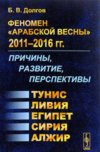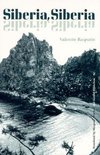
-
 Anglický jazyk
Anglický jazyk
Looking Closely
Autor: Susan Pollock
Soviet archaeological research in southern Turkmenistan revealed a series of small Late Neolithic and Aeneolithic villages strung along the streams that emerge from the Kopet Dag and water the narrow foothill zone separating the mountains from the Kara Kum... Viac o knihe
Na objednávku
115.65 €
bežná cena: 128.50 €
O knihe
Soviet archaeological research in southern Turkmenistan revealed a series of small Late Neolithic and Aeneolithic villages strung along the streams that emerge from the Kopet Dag and water the narrow foothill zone separating the mountains from the Kara Kum desert. A commonly accepted premise of their work was that these communities garnered their technological knowledge if not their populations from regions to the south and west in present-day Iran.
Since 2010 we have reinvestigated one of these sites, the small Late Neolithic (ca. 6200-5600 BCE) and early Aeneolithic (ca. 4800-4350 BCE) village of Monjukli Depe. Our research examines microhistories of cultural techniques as a source of insights into long-term and spatially extensive change as well as internal variations and similarities in material practices. This volume presents results of this work. A Bayesian modeling of 14C dates demonstrates a long hiatus between the Neolithic and Aeneolithic strata of the site as well as a hitherto unattested very early Aeneolithic phase ("Meana Horizon"). A sequence of densely built, well preserved Aeneolithic houses exhibits marked similarities to earlier Neolithic architecture in the region. Despite overall standardized plans, the houses reveal significant variations in internal features and practices. Similar flexibility within a set of common dispositions is evident in burial practices. Very limited quantities of pottery offer a stark contrast to the frequent occurrence of spindle whorls, indicating a substantial production of thread, and to a large and varied assemblage of clay tokens. A wide variety of fire installations attests to routinized handling of fire, which did not prevent at least one building from succumbing to a conflagration. Animal herding was heavily based on sheep and goats, while cattle figured prominently in feasts.
The Meana tradition at Monjukli Depe exhibits significant structural similarities to other early village societies in Western Asia and will make this volume of interest to scholars working on similar times and contexts.
Contents
i. Table of contents
ii. List of figures
iii. List of tables
iv. Preface - Susan Pollock and Reinhard Bernbeck
1. Introduction to the Project
Susan Pollock and Reinhard Bernbeck
2. Stratigraphy and Settlement Layout
Susan Pollock and Reinhard Bernbeck
3. Chronological Modeling for Monjukli Depe and the Kopet Dag Region
Ilia Heit
4. The House as Process: A Biography of Building 10 in Monjukli Depe
Vera Egbers
5. "Fire is a Good Servant but a Bad Master" - The Burnt House 14 at Monjukli Depe
Hana Kubelková
6. The Fire Installations from Monjukli Depe: Indicators for Social and Technological Change
Julia Schönicke
7. Remains of the Feast Days? A Comparative Study of Faunal Remains from Aeneolithic Monjukli Depe
Jana Eger
8. Dealing with the Dead in Aeneolithic Monjukli Depe: Norms and Handlungsräume in Burial Practices
Nolwen Rol
9. Demography and Pathology at Monjukli Depe
Dawnie Wolfe Steadman
10. The Pottery from Monjukli Depe and its Visual Affordance
Julia Schönicke
11. The Spindle Whorls from Monjukli Depe
Arnica Keßeler
12. Narrowing Down the Real World: Zoomorphic Figurines from Monjukli Depe
Jana Eger
13. The Tokens from Monjukli Depe
Julia Daitche
14. Conclusion: Looking Closely, Looking Back
Susan Pollock and Reinhard Bernbeck
Bibliography
- Vydavateľstvo: Sidestone Press
- Rok vydania: 2019
- Formát: Paperback
- Rozmer: 280 x 210 mm
- Jazyk: Anglický jazyk
- ISBN: 9789088907654

 Ruský jazyk
Ruský jazyk 




 Nemecký jazyk
Nemecký jazyk 




